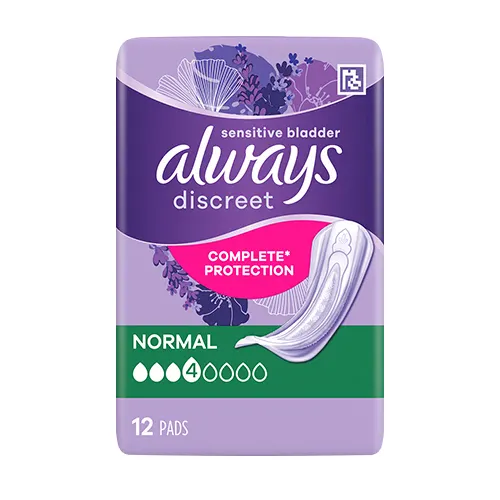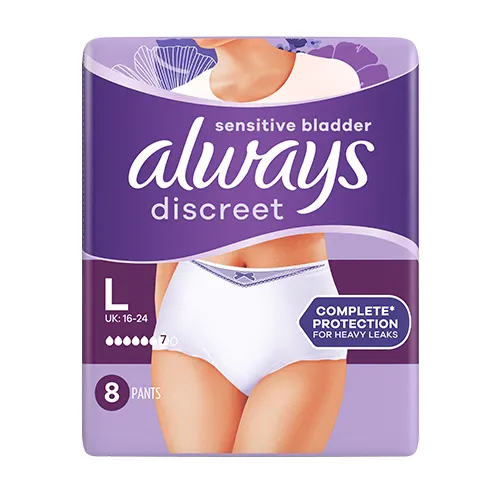
Get to know the symptoms you can expect from the menopause – as well as some great tips for dealing with them…
It used to be that the menopause was rarely mentioned, and many women were just left to get on with it. Which might have been manageable if you weren’t suffering too much from the symptoms, but could be horrendous if not – confusing, upsetting, painful and exhausting all at once.
Luckily, as more and more women are opening up about their experience of the menopause, it can help us prepare for and deal with it. There are plenty of online resources and support groups, women can be much better prepared for what to expect from the menopause.
Whether you’re experiencing your first menopausal symptoms, right in the middle of it or it’s a long way off, read our tips to deal with it. And if you’re really struggling with the symptoms too, pay a visit to your doctor. There’s medication to help with everything from hot flushes to mental health struggles, so don’t be afraid to seek the help you need.
At this time of life, it is important to continue to visit your gynaecologist on a regular basis. The aim is to detect any symptoms and prevent disease, for example, postmenopausal bleeding, breast lumps or vulvar lesions. Your gynaecologist will also be able to advise you on the best hygienic and dietary habits to prevent osteoporosis and cardiovascular risk and help you get the most out of your sex life.
1. Prioritise your sleep
The mebrnopause can disturb sleep patterns – from insomnia to waking up in a hot-flush-induced pool of sweat.To help with getting off to sleep, introduce a bedtime routine – a bath, a cup of warm milk and reading a few chapters of your book, for example. This will help tell your body that it’s time to wind down and prepare for sleep. For more great tips, try our 11 steps to the best night’s sleep ever.
To make hot flushes in the night more bearable, ensure the bedroom is cool and well ventilated via an open window or fan. Wear light cotton pyjamas and layer your bed with a thin sheet so you can kick off your duvet when you’re hot but still stay cosy.
2. Switch your skincare
Some women notice that their skin changes through the menopause, becoming more sensitive and prone to dryness. Adjust your beauty routine accordingly, looking for rich but oil-free lotions and a higher SPF protection as your skin becomes more sensitive to the sun.
3. Talk to family
For many women, the menopause is a right rollercoaster ride of moods and emotions. Although you’re the one having to deal with all these fluctuating emotions, your nearest and dearest will probably notice it too.So let them know that you’re feeling more sensitive than usual because of the menopause. Talk about how it’s impacting you, whether that’s because you’re finding yourself snapping at the slightest thing, or bursting into tears because the milk’s run out.
Hopefully together you’ll find ways to make sure you’re happy and comfortable while you go through this tricky time.
4. Diarise your symptoms
When people think of menopause, the symptom most of us think of is hot flushes. If you’re experiencing these, it could be that there are certain things that might trigger one for you. Caffeine, spicy food, smoking and alcohol, for example, are common ones.
Every time you suffer from a hot flush, think about what you’ve eaten, or what activity you’ve just done, and make a note of it in a diary. Start looking for patterns and, if you find that something appears to be triggering your hot flushes, it’s best to avoid it.
You might also find you suffer with more headaches than usual, or even migraines. Again, when this happens, make a note in your diary of what might have caused it and seek to avoid it in future.
5. Always be prepared
A hot flush can happen anywhere at any time, so you need to be prepared. Wear layers so you can quickly remove items of clothing when you’re having a flush. Also, focus on your breathing. Take slow, deep breaths from your abdomen until it passes.
Another symptom of the menopause is a more sensitive bladder, so also remember to wear protections to help eliminate wetness and odours from any impromptu leaks.
6. Talk to friends
You are not alone when going through the menopause, though it can often feel like it. Don’t be afraid to open up to your friends about how you’re feeling – you’ll probably discover they’re going through the same thing and you can even laugh (or cry) about it together.
You could also try an online forum, where the support you receive and stories shared will make you realise you are not the only one struggling through this time of life.
7. Try new hobbies
You can be more forgetful and get brain fog more often when you’re going through the menopause. Keep your mind active and brain ticking by reading, doing crosswords and Sudoku or even learning a new skill, perhaps by attending a dance class or language course.
Is there something you have always wanted to try but haven’t yet had the time? Check out our tips to make time for hobbies.
8. Take regular exercise
Exercise is great for making you feel good and for the cardiovascular benefits. This will also help you maintain muscle strength and bone mineral density. Brisk walks are a good way to get your heart going, and the fresh air is good for your overall mental health and wellbeing.
Yoga, too, is another great choice. While you’re doing all that bending and stretching, you need to focus on your breath, which helps quiet the mind and lower your stress levels. Try our yoga poses for menopause symptoms.
9. Eat healthy food
Do double check you’re getting all the right nutrients in a diet that’s rich in fruit and veg. Stuck for ideas? Start your day with one of our five healthy breakfast ideas, keep going through the day with our quick and healthy snacks and for dinner try one of our seven tasty (and healthy!) comfort foods the whole family will love.
Also, the Mediterranean diet is very good, you just need to increase the calcium intake. Vitamin D is essential for many biological systems as it promotes the absorption of calcium, strengthening bones and preventing falls.
10. Eliminate toxic habits from your life
Smoking is one of the most important risk factors in cardiovascular disease and osteoporosis. The less you smoke the better.
If necessary, modify your lifestyle to prevent risk factors. It is important to do this because the leading cause of death after menopause is cardiovascular disease.
11. Be aware of the risks
Have regular check-ups to prevent breast cancer. In women at high risk of developing this disease chemoprevention can be very useful.
If there are no risk factors, you should have a mammogram every 2 years from age 50. If there are risk factors, the frequency should be agreed with your gynaecologist. The widespread availability and improvements in radiological techniques, in particular mammograms, have made it possible to diagnose tumours early, improving survival rates and providing the option of less aggressive surgical treatments.
Osteoporosis is directly linked to menopause and ageing. However, there are other risk factors that can also interfere with bone regeneration, such as having a close relative with the disease, having had broken bones, having a body mass index below 20, etc.
12. Remain positive and have fun
Being sexually active helps prevent vaginal dryness and atrophy so a good sex life and a good relationship with your partner are a great support during this stage.
In general, women have a positive attitude towards this new mature woman stage. Almost twice as many menopausal women (38%) agree that “They feel as young as before” as those that disagree (21.3%). Menopause does not seem to have a significant effect on self-esteem, but it does have an effect on a woman’s sex life. Women agree that they can now have sex without the risk of getting pregnant, yet a high percentage of them have less sex than before menopause. It is important to maintain a positive state of mind and keep physically and mentally active.
Are you going through the menopause? Let us know how you’re coping and do share any tips you think may help others in the comments section below.
*If you are going through menopause or experiencing bladder leaks, always make sure to consult your doctor or a health specialist for these medical conditions.






